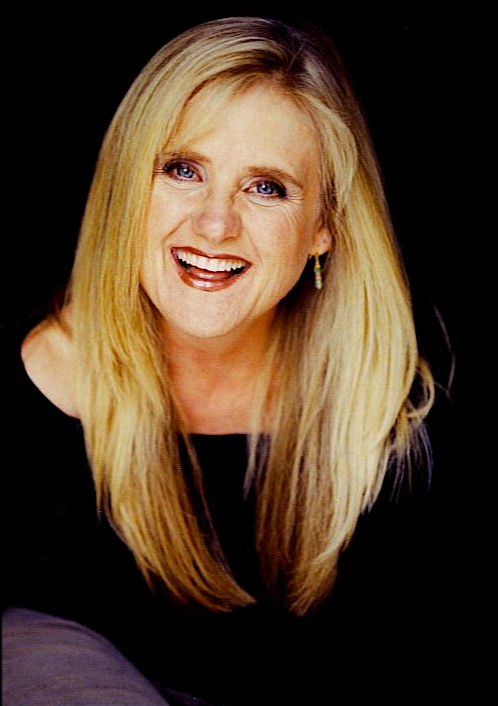|
┬ĪAy, Caramba!
"''┬ĪAy, caramba!''" (), from the Spanish interjections (denoting surprise or pain) and (a minced oath for ), is an exclamation used in Portuguese (''Ai, caramba!'') and Spanish to denote surprise (usually positive). In popular culture The exclamation became associated with the Madrid flamenco dancer and singer La Caramba in the 1780s. Her headdress of brightly colored ribbons became known as a ''caramba''. The knife-throwing villain in Tintin's adventure ''The Broken Ear'' (1935) exclaims "''Caramba!'' Missed again!" so often it became a catchphrase in French ("''Caramba, encore rat├®!''") The fictional character Bart Simpson (voiced by Nancy Cartwright) popularized the phrase "''┬ĪAy, caramba!''" in the animated sitcom ''The Simpsons''. He said it first in the 1988 short ''The Art Museum'', one of several one-minute ''Simpsons'' cartoons that ran as interstitials on ''The Tracey Ullman Show'' from April 14, 1987 to May 14, 1989 on Fox. In the episode "Selma's Choice", Bar ... [...More Info...] [...Related Items...] OR: [Wikipedia] [Google] [Baidu] |
Bart Simpson
Bartholomew JoJo "Bart" Simpson is a fictional character in the American animated television series ''The Simpsons'' and part of the Simpson family. He is voiced by Nancy Cartwright and first appeared on television in ''The Tracey Ullman Show'' short " Good Night" on April 19, 1987. Cartoonist Matt Groening created and designed Bart while waiting in the lobby of James L. Brooks' office. Groening had been called to pitch a series of shorts based on his comic strip, ''Life in Hell'', but instead decided to create a new set of characters. While the rest of the characters were named after Groening's family members, Bart's name is an anagram of the word ''brat''. After appearing on ''The Tracey Ullman Show'' for two years, the Simpson family received its own series on Fox, which debuted December 17, 1989. Bart has appeared in every ''Simpsons'' episode except "Four Great Women and a Manicure". At ten years old, Bart is the eldest child and only son of Homer and Marge, and the bro ... [...More Info...] [...Related Items...] OR: [Wikipedia] [Google] [Baidu] |
Selma's Choice
"Selma's Choice" is the thirteenth episode of the fourth season of the American animated television series ''The Simpsons''. It originally aired on the Fox network in the United States on January 21, 1993. In the episode, Selma decides to have a baby, inspired by her late aunt's wish that she not spend her life alone. She experiences what life with children is like by taking Bart and Lisa to the Duff Gardens amusement park, which does not go as planned. The episode was written by David M. Stern and directed by Carlos Baeza. Plot On a video will, Great Aunt Gladys advises her nieces Patty and Selma not to die alone, as she did. Selma decides she wants a child. Selma tries video dating, a love potion, and flirting with a bag boy before eventually going on a date with Hans Moleman after revoking his license at the DMV. All goes well until Moleman tries to kiss her goodnight; Selma envisions herself as the mother of several ugly, blind children and kicks Moleman out of the car. When ... [...More Info...] [...Related Items...] OR: [Wikipedia] [Google] [Baidu] |
Quotations From Television
A quotation is the repetition of a sentence, phrase, or passage from speech or text that someone has said or written. In oral speech, it is the representation of an utterance (i.e. of something that a speaker actually said) that is introduced by a quotative marker, such as a verb of saying. For example: John said: "I saw Mary today". Quotations in oral speech are also signaled by special prosody in addition to quotative markers. In written text, quotations are signaled by quotation marks. Quotations are also used to present well-known statement parts that are explicitly attributed by citation to their original source; such statements are marked with ( punctuated with) quotation marks. Quotations are often used as a literary device to represent someone's point of view. They are also widely used in spoken language when an interlocutor wishes to present a proposition that they have come to know via hearsay. As a literary device A quotation can also refer to the repeated use of unit ... [...More Info...] [...Related Items...] OR: [Wikipedia] [Google] [Baidu] |
Spanish Words And Phrases
Spanish might refer to: * Items from or related to Spain: **Spaniards are a nation and ethnic group indigenous to Spain **Spanish language, spoken in Spain and many Latin American countries **Spanish cuisine Other places * Spanish, Ontario, Canada * Spanish River (other), the name of several rivers * Spanish Town, Jamaica Other uses * John J. Spanish (1922ŌĆō2019), American politician * "Spanish" (song), a single by Craig David, 2003 See also * * * Espa├▒ol (other) * Spain (other) * Espa├▒a (other) * Espanola (other) * Hispania, the Roman and Greek name for the Iberian Peninsula * Hispanic, the people, nations, and cultures that have a historical link to Spain * Hispanic (other) * Hispanism * Spain (other) * National and regional identity in Spain * Culture of Spain * Spanish Fort (other) Spanish Fort or Old Spanish Fort may refer to: United States * Spanish Fort, Alabama, a city * Spanish Fort (Color ... [...More Info...] [...Related Items...] OR: [Wikipedia] [Google] [Baidu] |
Spanish Profanity
The Spanish language employs a wide range of swear words that vary between Spanish speaking nations and in regions and subcultures of each nation. Idiomatic expressions, particularly profanity, are not always directly translatable into other languages, and so most of the English translations offered in this article are very rough and most likely do not reflect the full meaning of the expression they intend to translate. Overview In Spanish, as in most languages, swear words tend to come from semantic domains considered taboo, such as human excretions, sexuality, and religion, and swearing serves several functions in discourse. Spanish insults are often of a sexual nature, taking the form of implying a lack of sexual decency if the insulted person is a woman (e.g. ''puta'', "whore", ''perra'' "bitch") or implying a lack of masculinity if the insulted person is male (e.g. ''maric├│n'' "faggot", ''puto'' "male prostitute"). A particularly forceful Spanish insult is any mention ... [...More Info...] [...Related Items...] OR: [Wikipedia] [Google] [Baidu] |
Comedy Catchphrases
Comedy is a genre of fiction that consists of discourses or works intended to be humorous or amusing by inducing laughter, especially in theatre, film, stand-up comedy, television, radio, books, or any other entertainment medium. The term originated in ancient Greece: in Athenian democracy, the public opinion of voters was influenced by political satire performed by comic poets in theaters. The theatrical genre of Greek comedy can be described as a dramatic performance pitting two groups, ages, genders, or societies against each other in an amusing '' agon'' or conflict. Northrop Frye depicted these two opposing sides as a "Society of Youth" and a "Society of the Old". A revised view characterizes the essential agon of comedy as a struggle between a relatively powerless youth and the societal conventions posing obstacles to his hopes. In this struggle, the youth then becomes constrained by his lack of social authority, and is left with little choice but to resort to ruses which en ... [...More Info...] [...Related Items...] OR: [Wikipedia] [Google] [Baidu] |
Sacrebleu
''Sacrebleu'' or ''sacre bleu'' is a French profanity used as a cry of surprise, irritation or displeasure. It is a minced oath form of the profane ''sacr├® dieu'', "''holy God''", which is, by some religions, considered a profanity, due to one of the Ten Commandments in the Bible, which reads "Thou shalt not take the name of the Lord thy God in vain." Usage The expression today is not used in France. In the English-speaking world, it is well known, perhaps from Agatha Christie's books about the fictional Belgian detective Hercule Poirot. Origin The phrase originated from the words "sacr├® dieu". At varying points in history this was considered to be taking God's name in vain, which is forbidden in the Ten Commandments. It was then changed to 'bleu' (blue) which rhymes with Dieu. Other sources propose it coming from old blasphemous curses relating to God,Tassie, J. S (1961).ŌĆØ The Use of Sacrilege in the Speech of French CanadaŌĆØ, ''American Speech'', 36.1 used from the ... [...More Info...] [...Related Items...] OR: [Wikipedia] [Google] [Baidu] |
Facepalm
A facepalm is the physical gesture of placing one's hand across one's face, lowering one's face into one's hand or hands or covering or closing one's eyes. The gesture is often exaggerated by giving the motion more force and making a slapping noise when the hand comes in contact with the face. The gesture is found in many cultures as a display of frustration, disappointment, exasperation, embarrassment, horror, shock, surprise, exhaustion, sarcasm, shame, or incredulous disbelief. Origins The term ''facepalm'' (often used on its own in the same manner as an interjection might be) means that the palm of the hand is brought to the face with fingers splayed as if grasping. The earliest known evidence of this word is found in records of a Usenet post now archived at Google Groups (bit.listserv.superguy) from May 15, 1996: ŌĆ£Christie facepalmed. ŌĆśWell, her hair was red this morning, right? It's blonde now. You figure it out.ŌĆÖŌĆØ It appears again less than a week later, in ... [...More Info...] [...Related Items...] OR: [Wikipedia] [Google] [Baidu] |
D'oh!
"D'oh!" () is the most famous catchphrase used by the fictional character Homer Simpson, from the television series ''The Simpsons,'' an animated sitcom (1989ŌĆōpresent). It is an exclamation typically used after Homer injures himself, realizes that he has done something foolish, or when something bad has happened or is about to happen to him. All his prominent blood relationsŌĆöson Bart, daughters Lisa and Maggie, his father, his mother and half-brotherŌĆöhave also been heard to use it themselves in similar circumstances. On a few occasions, Homer's wife Marge and characters outside the family such as Mr. Burns and Sideshow Bob have also used this phrase. In 2006, "d'oh!" was listed as number six on TV Land's list of the 100 greatest television catchphrases. The spoken word "d'oh" is a sound trademark of 20th Century Fox (now known as 20th Century Studios). Since 2001, the word "doh" has appeared in the ''Oxford English Dictionary'', without the apostrophe. Early recorded usa ... [...More Info...] [...Related Items...] OR: [Wikipedia] [Google] [Baidu] |
Jeff Martin (writer)
Jeff Martin is an American television producer and writer. He originally wrote for ''The Simpsons'' during the second, third, fourth and fifth seasons, and eventually returned over 20 years later to write again for seasons 27 and 28. He attended Harvard University, where he wrote for ''The Harvard Lampoon'', as have many other ''Simpsons'' writers. He left along with most of the original staff in 1993, and has since written for several TV shows, including '' Listen Up!'', ''Baby Blues'' and '' Homeboys in Outer Space''. He also wrote for ''Late Night with David Letterman'' during the 1980s, and occasionally appeared on the show as Flunky the late-night viewer mail clown, a depressed clown who smoked cigarettes and sometimes talked about his infected tattoos and other health problems. Martin won four Emmys during his time at ''Late Night''. He lives in Los Angeles with his wife, fellow television producer and writer Suzanne Martin. [...More Info...] [...Related Items...] OR: [Wikipedia] [Google] [Baidu] |
Da Capo Press
Da Capo Press is an American publishing company with headquarters in Boston, Massachusetts. It is now an imprint of Hachette Books. History Founded in 1964 as a publisher of music books, as a division of Plenum Publishers, it had additional offices in New York City, Philadelphia, Los Angeles, and Emeryville, California. The year prior, Da Capo Press had net sales of over $2.5 million. Da Capo Press became a general trade publisher in the mid-1970s. It was sold to the Perseus Books Group in 1999 after Plenum was sold to Wolters Kluwer. In the last decade, its production has consisted of mostly nonfiction titles, both hardcover and paperback, focusing on history, music, the performing arts, sports, and popular culture. In 2003, Lifelong Books was founded as a health and wellness imprint. When Marlowe & Company became part of the imprint in 2007, Lifelong's range was expanded to include the New Glucose Revolution series and numerous diabetes titles, as well as books on healthful ... [...More Info...] [...Related Items...] OR: [Wikipedia] [Google] [Baidu] |
Douglas Coupland
Douglas Coupland (born 30 December 1961) is a Canadian novelist, designer, and visual artist. His first novel, the 1991 international bestseller '' Generation X: Tales for an Accelerated Culture'', popularized the terms ''Generation X'' and ''McJob''. He has published thirteen novels, two collections of short stories, seven non-fiction books, and a number of dramatic works and screenplays for film and television. He is a columnist for the ''Financial Times'' and a frequent contributor to ''The New York Times'', '' e-flux journal'', ''DIS Magazine'', and ''Vice''. His art exhibits include ''Everywhere Is Anywhere Is Anything Is Everything'' which was exhibited at the Vancouver Art Gallery, and the Royal Ontario Museum and the Museum of Contemporary Canadian Art, (now the Museum of Contemporary Art Toronto) and ''Bit Rot'' at Rotterdam's Witte de With Center for Contemporary Art and the Villa Stuck. Coupland is an Officer of the Order of Canada, and a member of the Order of Britis ... [...More Info...] [...Related Items...] OR: [Wikipedia] [Google] [Baidu] |






